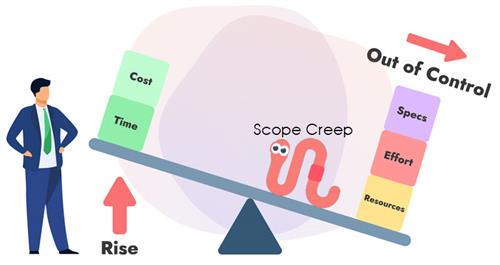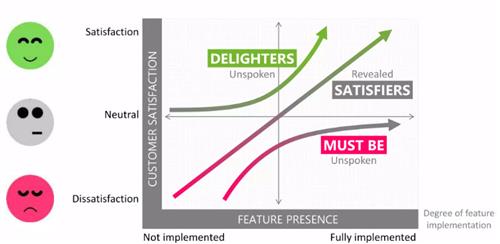
Seed Keywords: Sowing The Seeds For Your Website's SEO Success
Published on: September 03, 2021
Last updated: September 04, 2024 Read in fullscreen view
Last updated: September 04, 2024 Read in fullscreen view
- 17 Jul 2023
 What Is SSL? A Simple Explanation Even a 10-Year-Old Can Understand 42/120
What Is SSL? A Simple Explanation Even a 10-Year-Old Can Understand 42/120 - 05 Jul 2020
 What is Sustaining Software Engineering? 38/1301
What is Sustaining Software Engineering? 38/1301 - 01 Mar 2023
 What is Unit Testing? Pros and cons of Unit Testing? 29/439
What is Unit Testing? Pros and cons of Unit Testing? 29/439 - 20 Mar 2022
 What is a Multi-Model Database? Pros and Cons? 21/1164
What is a Multi-Model Database? Pros and Cons? 21/1164 - 03 Jul 2022
 What is the difference between Project Proposal and Software Requirements Specification (SRS) in software engineering? 17/1025
What is the difference between Project Proposal and Software Requirements Specification (SRS) in software engineering? 17/1025 - 31 Dec 2021
 What is a Data Pipeline? 16/215
What is a Data Pipeline? 16/215 - 10 Apr 2022
 What is predictive analytics? Why it matters? 15/192
What is predictive analytics? Why it matters? 15/192 - 22 Sep 2022
 Why is it important to have a “single point of contact (SPoC)” on an IT project? 14/939
Why is it important to have a “single point of contact (SPoC)” on an IT project? 14/939 - 30 Jan 2022
 What Does a Sustaining Engineer Do? 14/617
What Does a Sustaining Engineer Do? 14/617 - 25 Apr 2021
 What is outstaffing? 14/270
What is outstaffing? 14/270 - 13 Nov 2021
 What Is Bleeding Edge Technology? Are bleeding edge technologies cheaper? 13/539
What Is Bleeding Edge Technology? Are bleeding edge technologies cheaper? 13/539 - 15 Aug 2025
 Quantum Technology: Global Challenges and Opportunities for Innovators 4/100
Quantum Technology: Global Challenges and Opportunities for Innovators 4/100
Importance of Keywords
The success of your search engine optimization (SEO) strategy is largely determined by the choice of keywords. Targeting the wrong keywords can hinder a website's ranking in organic search results.
Definition of Seed Keywords
Seed keywords are short-tail keywords (1-2 words) with high search volumes and competition, serving as the foundation for generating long-tail keywords.
Benefits of Seed Keywords
- They help create relevant long-tail keywords, which are less competitive and more beneficial for SEO.
- Optimizing for long-tail keywords also enhances relevance for the associated seed keywords, improving overall site ranking.
Selecting Seed Keywords
- Choose seed keywords that reflect your website's content and can be expanded with modifiers.
- Consider your website's goals when selecting seed keywords, whether for e-commerce or niche blogging.
Placement of Seed Keywords
- Seed keywords should primarily be placed on the homepage, while subpages should focus on long-tail keywords.
- Limit the number of seed keywords to 1-3 for effective on-page SEO.
Generating Long-Tail Keywords
Use keyword research tools like Google Ads' Keyword Planner to discover long-tail keywords based on selected seed keywords.
Continue reading at forbes.com
[{"displaySettingInfo":"[{\"isFullLayout\":false,\"layoutWidthRatio\":\"\",\"showBlogMetadata\":true,\"showAds\":true,\"showQuickNoticeBar\":true,\"includeSuggestedAndRelatedBlogs\":true,\"enableLazyLoad\":true,\"quoteStyle\":\"1\",\"bigHeadingFontStyle\":\"1\",\"postPictureFrameStyle\":\"2\",\"isFaqLayout\":false,\"isIncludedCaption\":false,\"faqLayoutTheme\":\"1\",\"isSliderLayout\":false}]"},{"articleSourceInfo":"[{\"sourceName\":\"\",\"sourceValue\":\"\"}]"},{"privacyInfo":"[{\"isOutsideVietnam\":false}]"},{"tocInfo":"[{\"isEnabledTOC\":true,\"isAutoNumbering\":false,\"isShowKeyHeadingWithIcon\":false}]"},{"bannerInfo":"[{\"isBannerBrightnessAdjust\":false,\"bannerBrightnessLevel\":\"\",\"isRandomBannerDisplay\":true}]"},{"termSettingInfo":"[{\"showTermsOnPage\":true,\"displaySequentialTermNumber\":true}]"}]
Via
{content}












04102024050214_thumb.jpg)






















 Link copied!
Link copied!
 Recently Updated News
Recently Updated News